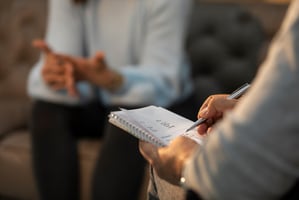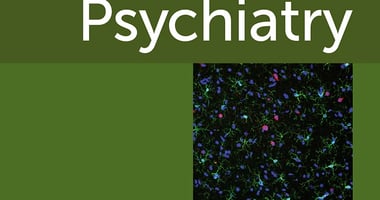Psychiatrists Report Mostly Positive Transition to Telemedicine During Pandemic
 |
Despite some challenges, 20 psychiatrists who completed interviews from March 31 to April 9 said that the transition to seeing patients via telemedicine due to COVID-19 has generally been a positive experience. The findings appear in an article in press at Psychiatric Services.
“The majority argued that given the unprecedented circumstances, the transition to telemedicine went more smoothly than they had expected, and they were pleasantly surprised that they could meet patients’ needs via telemedicine,” wrote Lori Uscher-Pines, Ph.D., of the RAND Corporation and colleagues.
The researchers interviewed 20 outpatient psychiatrists transitioning to telemedicine due to the COVID-19 pandemic. The researchers recruited psychiatrists for the study from a panel of 730,000 physicians who are part of an online network; psychiatrists were sent an eight-item screener survey to assess eligibility for participation. The psychiatrists were practicing in states especially hard-hit by the pandemic, including New York, California, Washington, New Jersey, and Louisiana. During 30-minute phone calls, the researchers covered topics such as practice setting, patient population, and barriers encountered during the transition to telemedicine.
While most of the psychiatrists had only limited telemedicine experience with their patients prior to the outbreak of COVID-19, by March most had transitioned to fully virtual practices through which they offered video visits and/or phone visits.
There were positive and negative impacts to working with patients via telemedicine, the psychiatrists reported. Negative impacts included their reduced ability to observe nonverbal cues of patients to support diagnosis and treatment and hear patients clearly; additionally, patients may not have had privacy and had to deal with more distractions in the home. Positive impacts included increased ease and access for some patients and the ability to see patients’ home environment. Most participants reported that patients had been responding positively to the switch, as well.
The psychiatrists expressed a strong preference to return to in-person care after the pandemic ends. “Reasons include the ritual of going to an office, the fact that the office is a private and safe space, and for some, the perceived inferior quality of physician-patient interactions via telemedicine,” the authors wrote.
The psychiatrists shared lessons they had learned during the rapid transition to telemedicine, including the following:
- Start each visit by asking patients whether they are concerned about their privacy, and if they do not have privacy, reschedule the session. One psychiatrist reported that some patients have done visits from a car outside the home.
- Reassure patients by conducting video visits from the same spot in your home or office.
- Identify patients “at risk” of having difficulty with video visits and explore if there is someone in their environment who can help them.
- Choose a platform that will ensure patients cannot see your personal phone number.
(Image: iStock/izusek)
Now in Psychiatric News
 |
Behavioral Health Organizations Struggle Financially During Pandemic
Don’t miss out! Learn when a new issue of Psychiatric News is posted by signing up here.





